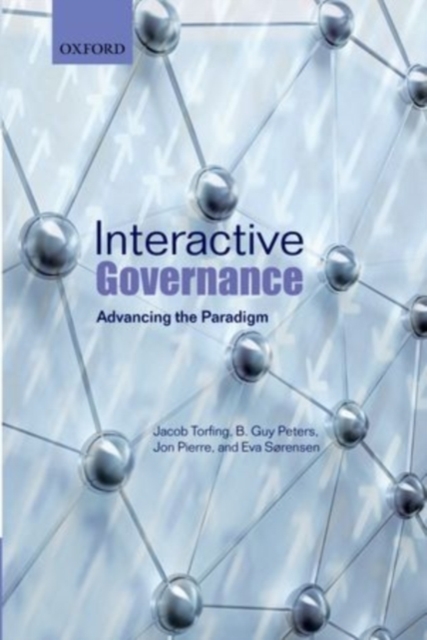
Interactive Governance : Advancing the Paradigm PDF
by Jacob Torfing, B. Guy Peters, Jon Pierre, Eva Sorensen
Description
Governance has become one of the most commonly used concepts in contemporary political science. It is, however, often used to mean a variety of different things.
This book helps to clarify this conceptual muddle by concentrating on one variety of governance-interactive governance.
The authors argue that although the state may remain important for many aspects of governing, interactions between state and society represent an important, and perhaps increasinglyimportant, dimension of governance.
These interactions may be with social actors such as networks, with market actors or with other governments, but all these forms represent means of governing involving mixtures of state action with the actions of other entities.This book explores thoroughly this meaningof governance, and links it to broader questions of governance.
In the process of explicating this dimension of governance the authors also explore some of the more fundamental questions about governance theory.
For example, although governance is talked about a great deal political science has done relatively little about how to measure this concept.
Likewise, the term multi-level governance has become widely used but its important to understand that idea more fully and see how it functions inthe context of interactive forms of governance.
The authors also link governance to some very fundamental questions in political science and the social sciences more broadly.
How is power exercised in interactive governance? How democratic is interactive governance, and is democratic governancealways advanced through transparency?
Information
-
Download - Immediately Available
- Format:PDF
- Publisher:OUP Oxford
- Publication Date:12/01/2012
- Category:
- ISBN:9780191628467
Information
-
Download - Immediately Available
- Format:PDF
- Publisher:OUP Oxford
- Publication Date:12/01/2012
- Category:
- ISBN:9780191628467






